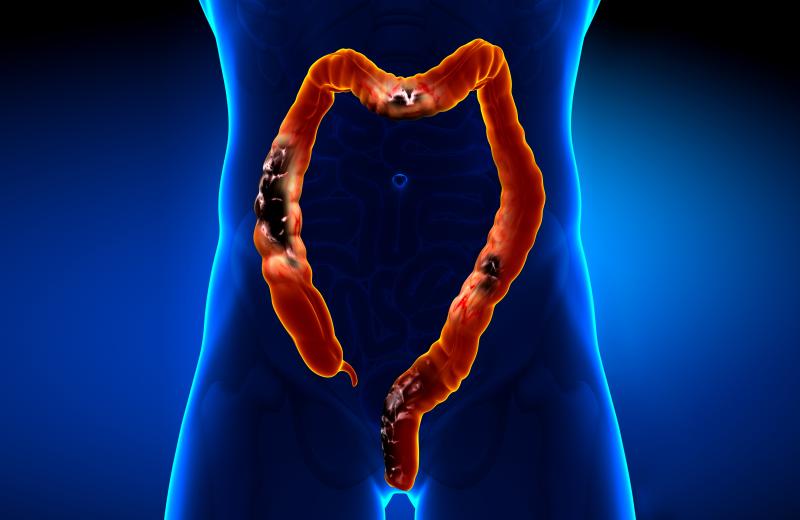
Subcutaneous vedolizumab works as a maintenance therapy in patients with moderately to severely active ulcerative colitis, a recent study has found.
The study included 353 patients who had been given 300 mg intravenous vedolizumab for 2 weeks. By week 6, those who showed treatment response (n=215) were randomized to receive maintenance treatment with either 108 mg subcutaneous vedolizumab every 2 weeks (n=106), 300 mg intravenous vedolizumab every 8 weeks (n=54) or placebo (n=56).
By week 52, almost half of those receiving subcutaneous maintenance were in clinical remission (46.2 percent), as opposed to only 14.3 percent in the placebo group. The resulting difference was statistically significant (difference, 32.3 percent, 95 percent confidence interval [CI], 19.7–45.0; p<0.001).
Subcutaneous vedolizumab was likewise better than placebo for endoscopic improvement and durable clinical response (p<0.001 for both).
Moreover, participants who had been given placebo saw a gradual decrease in scores in the Inflammatory Bowel Disease Questionnaire and EuroQol-5D visual analogue scale during the maintenance phase. This effect was absent in both intravenous and subcutaneous vedolizumab groups.
The route of administration does not seem to affect the safety profile of vedolizumab. Worsening of ulcerative colitis was the most common adverse event, reported in 14.2 percent and 11.1 percent of subcutaneous and intravenous groups, respectively. Notably, this was more prevalent in the placebo group (32.1 percent).
There were no reports of serious adverse events of special interest, including liver injuries, malignancies and hypersensitivities. No deaths were recorded.